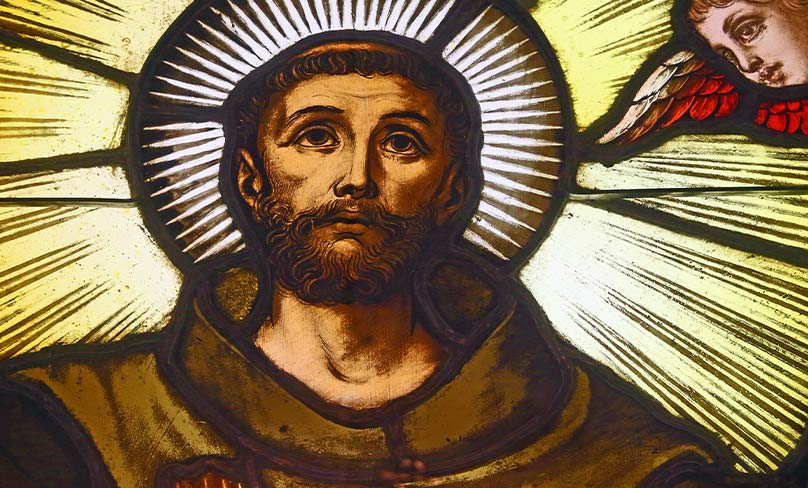
The crisis is real and requires prudent responses
Previously I wrote about the need to start our response to the Plenary Council by focusing on where the Holy Spirit is at work already. In the midst of Ordinary Time, which is the liturgical season in which the Plenary Council begins to meet, we should open our eyes to the life already present. We mustn’t allow ourselves the lazy notion that if things are bad locally, they must be bad everywhere.
On the other side of the coin from life, we need to reflect thoughtfully on the experience of stagnation and death in our Church. The crisis points are real. They include the learnings and legacy of the Royal Commission, uneven numbers of home-grown vocations in priestly and religious life, loss of trust in bishops and church leaders, a disaster in married and family life across our nation, the loss of appreciation of each child and human being as a gift, a diminished practice of personal prayer, and so forth.
while our work for the Gospel is crucial, it can only be fruitful when borne of contemplation and prayer.
Among the challenges there are individuals, religious, lay and ordained, who are working tirelessly to re-engage families, build up the faithful, inspire faithful vocations of all kinds and protect those who are vulnerable. The most beautiful work of the Church cannot be found in newspapers and in the evening news. Rather, it is quiet, prayerful and faithful, infused with joy and finding the fruits of the Holy Spirit away from the public glare.
Such work requires prudent choices about our time and resources. On the one hand, in looking at signs of stagnation, we may hear the call of the Gospel to seek out those “on the peripheries”, as Francis refers to those who suffer. The Instrumentum Laboris challenges us:
“In those who are considered ‘the least’ (Matt 25:40) according to social attitudes and priorities, Christians are challenged to see the ‘blessed’ of God’s kingdom (Luke 6:20).” (IL #98)
There will be other signs of decay peculiar to church life, of committees that have out-served their need, buildings that require re-purposing, ministries that lack a Gospel flavour, institutions that have lost their way. In the New Testament, the Holy Spirit is never given so that disciples might close their eyes to the truth of their situation. Nevertheless, we ought to recall the story of St Francis of Assisi, praying before the image of the Crucifix in the crumbling church of San Damiano. The Lord spoke to Francis, “Go and rebuild my Church, for it is falling into ruins.”
The lesson of St Francis for us in Australia is about serious discernment. On some aspects of our Church, we will need to leave behind and brush the dust off our feet. On others, we will need to roll our sleeves up and get to work on re-building, just like St Francis. Decisions to leave some things behind in one place and to re-build in another are very likely.
This project can only be successful if it is centred on the face of Christ as one who gazes upon us with love, and whose Holy Spirit stirs us to discipleship:
“Discernment is an essential spiritual practice for the entire Church in its mission to “live the Gospel in changing times”. (IS #97)
Much of our discussion in the pragmatic culture of contemporary Australia ends up focusing on what we ought to “do.” And while our work for the Gospel is crucial, it can only be fruitful when borne of contemplation and prayer. The Holy Spirit stirs us first within our heart, which cannot be seen by others. When we drink deeply from the wells of the Spirit—with honest devotion, scriptural meditation, making use of the sacraments of Reconciliation and of the Eucharist, offering works of charity away from public recognition—then the combination of peace and a stirring to action begins.
In the Holy Spirit, the Church at the Plenary Council might well be invited to pause and take heart long before the call to action takes place. As others have put it: “Don’t just do something, sit there!”
The Plenary Council’s working document takes inspiration from scripture, in which the boldness of the Gospel is seen when we call upon and trust Christ Jesus in the power of the Holy Spirit:
“Now when they saw the boldness of Peter and John, and perceived that they were uneducated common men, they were astonished. And they recognised that they had been with Jesus.” (Acts 4: 13)
Prayerfully, may the Plenary Council be an impetus for Australians to look upon us and recognise that we also have been with Jesus, especially in the most ordinary of our time.
Related:
- Nigel Zimmermann: The challenges of the Plenary
- Dr Philippa Martyr: Will the Plenary discuss teaching the Real Presence?
- Plenary must face up to our crisis of faith, says Archbishop
